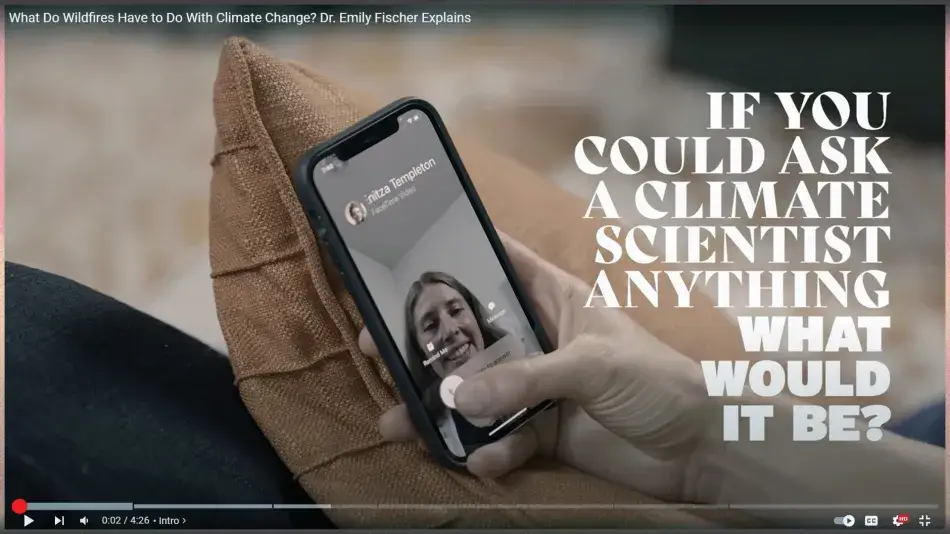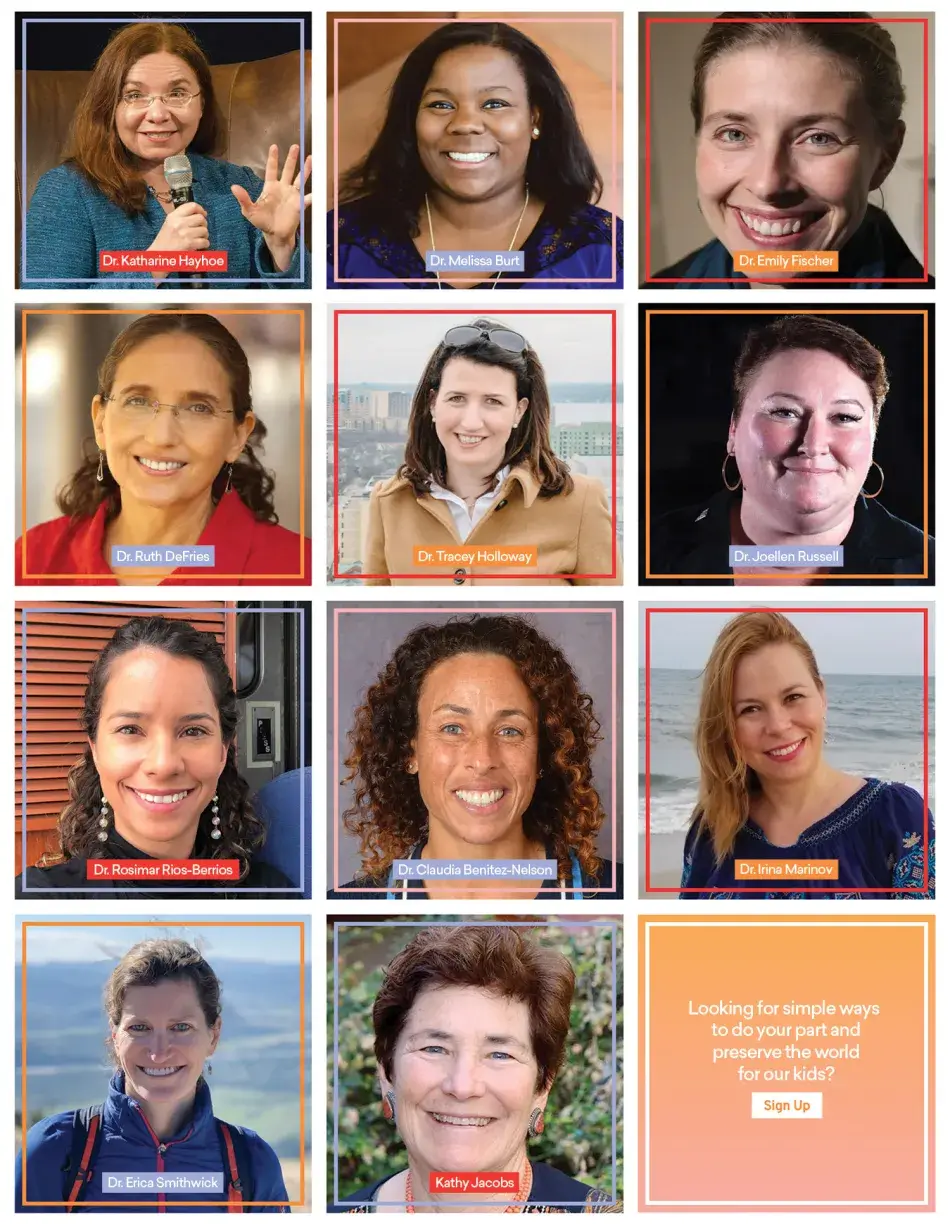Principle 5: Emphasize Nonscientific Identities
Scientists and other experts can minimize the polarizing effects of tribal identity by emphasizing aspects of identity that they share with their audience. While many Americans oppose elitism and, correspondingly, messages from elite scientists, people identify with those they see as like them.
Opposition to elites is for some a form of social identity (Schulz, Wirth, and Müller 2020). But because people also identify with those they perceive to be like them (“like tend to associate with like”—a tendency sociologists call the “homophily principle”; Lazarsfeld and Merton 1954), a scientist can have other identities with greater credibility.
Women overall are more likely to support climate action than are men (Leiserowitz et al. 2020). A 2019 survey by the Potential Energy Coalition found that global warming is of special concern to mothers (Phillips 2021). Motherhood is an identity that transcends partisan divides to signal shared experiences and concerns.
The challenge to be addressed:
Although trust in science and scientists remains high, it is lower among some segments of the population (Kennedy, Tyson, and Funk 2022).
The climate science:
“Climate change is already impacting our world, putting wildlife, nature and people’s lives and homes at risk. We can already see that the current global temperature rise of around 1°C on pre-industrial levels is impacting the UK climate. We’ve had one of the hottest summers on record as part of a heatwave which hit the entire northern hemisphere. But even this extreme weather is nothing compared to what warming of 1.5°C or 2°C could look like, and what damage it could have on a global scale. The difference between 1.5°C and 2°C is huge. It means three times as many people exposed to extreme heatwaves at the higher temperature, than at 1.5°C, and a massive 170% increase in flood risk compared to today, if a 2°C warming is reached” (WWF 2018).
“Advanced technologies that provide great promise include greater use of electric-drive technologies” (Kahn Ribeiroet al. 2007).
Example 1: Emphasizing a familial identity—Science Moms

Source: Science Moms 2021b.
Science Moms is a group of women climate scientists whose videos, public service announcements (PSAs), and podcasts focus on persuading other moms to urge local, state, and federal officials to pass and implement solutions to the climate crisis. Their message:
“We’re a group of nonpartisan climate scientists and mothers, working to give our children the planet they deserve.
We founded Science Moms to help mothers who are concerned about their childrens’ [sic] planet, but aren’t confident in their knowledge about climate change or how they can help. Together, we aim to demystify climate science and motivate everyday moms to demand solutions that preserve the planet for their kids.
As scientists, we have collectively spent decades studying our earth and what human activity is doing to it. We are steeped in this reality every day and know that to solve this problem, it will take all of us moms joining forces.
Together, we aim to demystify climate science and motivate everyday moms to demand climate change plans and solutions that preserve the planet for our kids.”
Source: Science Moms 2022.
In 2021, Science Moms’ messaging was featured in a $10 million ad campaign. As this report was being written, its PSAs were still airing on cable stations in the United States.

Source: Science Moms 2022.
Emily V. Fischer, a founding member of Science Moms, is an atmospheric chemist, an associate professor in the Department of Atmospheric Science at Colorado State University, a 2019 recipient of the American Geophysical Union’s James B. Macelwane Medal, and formerly a National Oceanic and Atmospheric Administration (NOAA) Environmental Fellow at the Harvard University Center for the Environment, where she “explored the processes controlling the distribution of the most important atmospheric oxidants, the hydroxyl radical and ozone” (Wikipedia 2021).
In an online video titled “What Do Wildfires Have to Do with Climate Change?” Fischer foregrounds her identity as a mom as she talks with Enitza, a mom of four in Colorado, about how climate change is causing bigger, deadlier wildfires and how this makes her feel as a climate scientist. “The way forward is toward energy production that does not use fossil fuels,” she notes. “At the local level, ask your utility company, ask your leaders: how are you shifting to clean energy. . . . Put that pressure on” (Science Moms 2021b).
Effectiveness:
John Marshall is CEO of the nonprofit marketing firm Potential Energy Coalition, which launched the Science Moms campaign. “We’ve tested a whole bunch of different angles, and it’s really human stories about you, your community, and the people you love and care about being impacted that anchors us in relevance,” Marshall said. “And we found that messaging through your children is one of the leading effective ways, if not the most effective” (Beer 2021).
An earlier campaign mobilizing moms, Mothers Against Drunk Driving (MADD), has been credited with helping pass more than one thousand tougher DUI laws (Editorial Staff 2020) and with “changing American attitudes toward drinking and driving” (Fell and Voas 2006).
The need:
Identify, deploy, and test the feasibility of employing other identities that climate advocates have in common with their intended audiences.